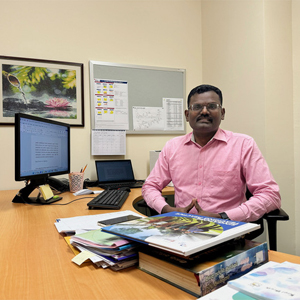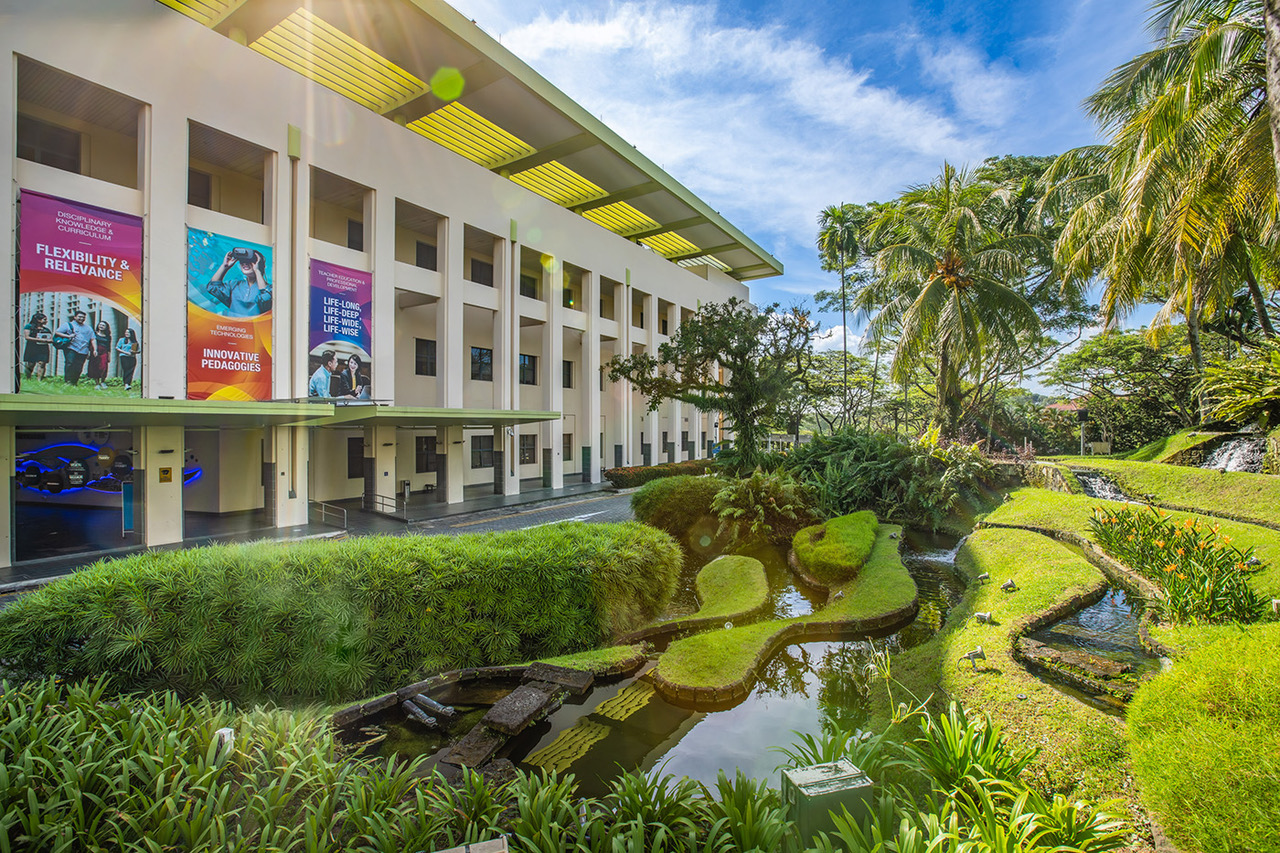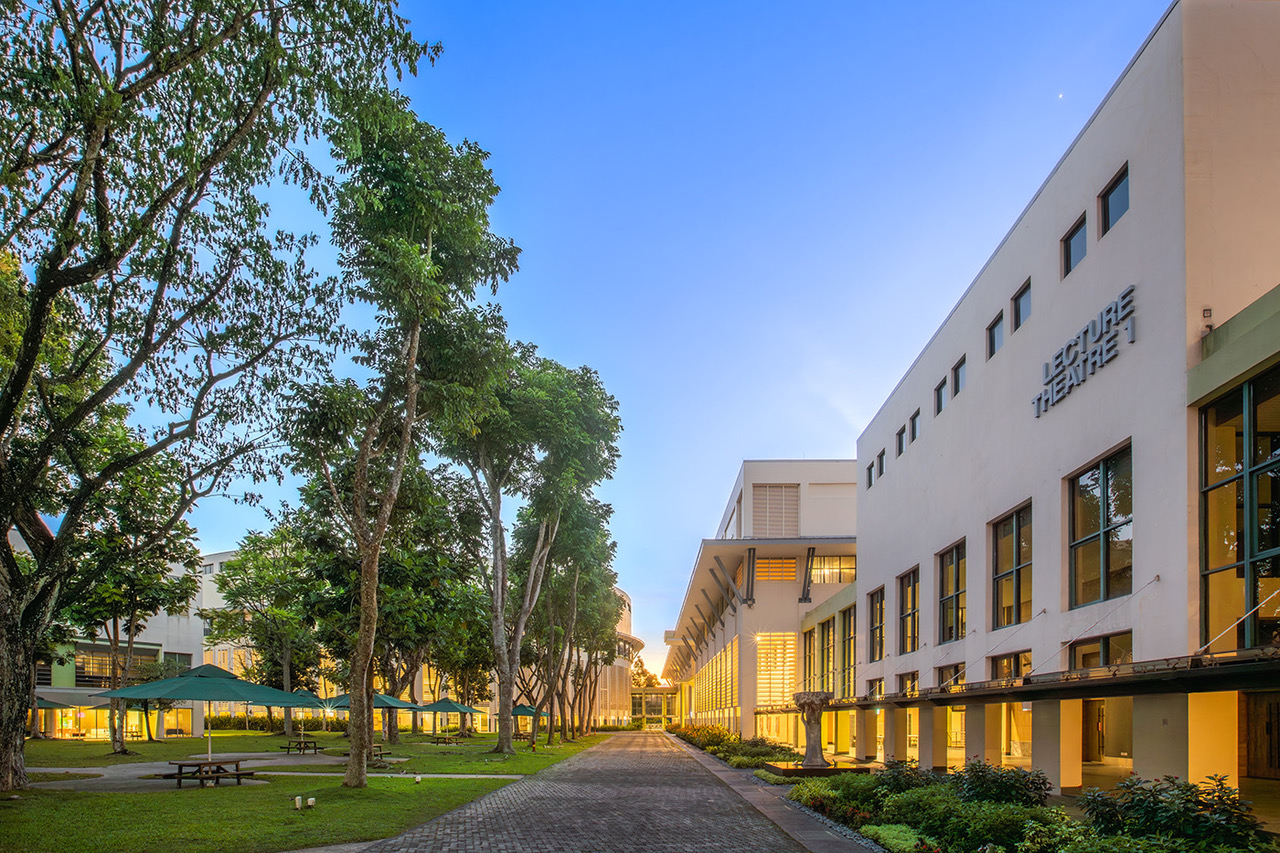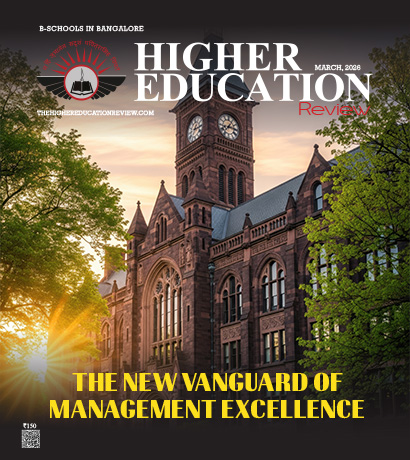An NTU Lecturer with an International Worldview Explores Tamil Language and Literature
 As a researcher and lecturer in Tamil Language and Literature at the National institute of Education, Nanyang Technological University, Singapore (NIE NTU, Singapore), Dr Dhamaraj Sundararaj’s academic interest started as early as during his undergraduate days studying Tamil Literature in a college in Madurai. As iron sharpens iron, Dr Sundararaj, surrounded by like-minded classmates who excelled in poetry writing, engaged in writing poems, often inspired by scenes that sparked new ideas. “If I couldn’t immediately transform these ideas into poems, I made sure to jot them down. Very often I was surprised to discover that these ideas had evolved into detailed descriptions which eventually laid the foundation for my research endeavours,” chuckled Dr Sundararaj.
As a researcher and lecturer in Tamil Language and Literature at the National institute of Education, Nanyang Technological University, Singapore (NIE NTU, Singapore), Dr Dhamaraj Sundararaj’s academic interest started as early as during his undergraduate days studying Tamil Literature in a college in Madurai. As iron sharpens iron, Dr Sundararaj, surrounded by like-minded classmates who excelled in poetry writing, engaged in writing poems, often inspired by scenes that sparked new ideas. “If I couldn’t immediately transform these ideas into poems, I made sure to jot them down. Very often I was surprised to discover that these ideas had evolved into detailed descriptions which eventually laid the foundation for my research endeavours,” chuckled Dr Sundararaj.
 Gone are the days of a young undergraduate doodling in his notepad. In its place now is a contributing faculty member at NIE who counts “language” and “literature” as his twin pillars which he relies on to fulfill his academic dreams of pursuing research and learning.
Gone are the days of a young undergraduate doodling in his notepad. In its place now is a contributing faculty member at NIE who counts “language” and “literature” as his twin pillars which he relies on to fulfill his academic dreams of pursuing research and learning.
“At 28, I successfully obtained my Doctor of Philosophy from Jawaharlal Nehru University, a prestigious university in India,” revealed Dr Sundararaj, “My interests in languages didn’t stop there. I have nurtured a deep fascination for unravelling the intricacies of Tamil as well as other languages.” Indeed, it was Dr Sundararaj’s Tamil professor during his postgraduate studies at the Madurai Kamaraj University who instilled in him a deep interest in the study of language, leaving an indelible impact on Dr Sundararaj’s intellectual development.
Following his graduation, Dr Sundararaj served as a researcher and lecturer at various esteemed institutions in both India and Germany. “However, it was NIE’s emphasis on applied linguistics, which delves into the practical aspects of language studies, that primarily influenced my decision to join NIE,” shared Dr Sundararaj.
 As part of his research at NIE, Dr Sundararaj is drawn to the comparative analysis of Tamil with other ancient languages, employing various linguistics approaches and delving into the exploration of the diverse forms of Tamil, including regional dialects, social dialects, and religious dialects. More recently, his research has focused on studying the comparative phonological theories present in the earliest traditional grammars of Tamil (Tolkappiyam, BC300), Greek (Techne grammatika, BC200) and Arabic (Al-Kitab, AD800). “My area of interest involves the examination of classical and modern theories related to language description and language teaching, as well as the exploration of linguistics theories in classical languages such as Greek, Sanskrit, and Arabic,” added Dr Sundararaj. “I was particularly fascinated to learn that Tolkappiyam, an ancient Tamil grammar treatise renowned for its scholarly insights, elucidated the fundamental principles of the Tamil language with exceptional clarity and accuracy two millennia ago.”
As part of his research at NIE, Dr Sundararaj is drawn to the comparative analysis of Tamil with other ancient languages, employing various linguistics approaches and delving into the exploration of the diverse forms of Tamil, including regional dialects, social dialects, and religious dialects. More recently, his research has focused on studying the comparative phonological theories present in the earliest traditional grammars of Tamil (Tolkappiyam, BC300), Greek (Techne grammatika, BC200) and Arabic (Al-Kitab, AD800). “My area of interest involves the examination of classical and modern theories related to language description and language teaching, as well as the exploration of linguistics theories in classical languages such as Greek, Sanskrit, and Arabic,” added Dr Sundararaj. “I was particularly fascinated to learn that Tolkappiyam, an ancient Tamil grammar treatise renowned for its scholarly insights, elucidated the fundamental principles of the Tamil language with exceptional clarity and accuracy two millennia ago.”
Dr Sundararaj observed that the way in which Toklappiyam grappled with various linguistic challenges and proposed solutions to teaching-related dilemmas persists to this day. Serving as a driving force in his academic pursuit, Dr Sundararaj’s study of the comparative analysis of the earliest and most foundational traditional grammar of Tamil, Greek, Arabic and other classical languages had revealed the distinct phonological theories present in the grammar of Tamil, Greek, and Arabic. In fact, Dr Sundararaj opined that the analysis and comparison between the classical perspectives on phonological theories within the context of classical languages from different parts of the world is crucial for developing new Phonological theories with a focus on pedagogy. “What my study has shown was that besides the shared phonological theories among these three languages, these traditional phonological theories also evolved within the realm of modern linguistics, which emerged during the 20th century, and how both traditional and modern phonological theories contribute to language teaching,” said Dr Sundararaj excitedly.
Naturally, research is not without challenges. In Dr Sundararaj’s case, the complexities of grasping the structure, linguistic features, and grammatical intricacies of each Classical language proved to be daunting tasks. “To overcome these challenges, I dedicated a substantial amount of time to understanding the unique characteristics, linguistics features, and grammatical rules of each language,” recounted Dr Sundararaj.
 In addition, while Dr Sundararaj had initially found it challenging to establish the relevance and justification for comparing each phonological element, he was able to find resolutions to these challenges by delving into the linguistic traditions of each language. What followed was an astonishing discovery where he uncovered a multitude of commonalities between Tamil, Greek, and Arabic, three linguistic traditions, specifically their phonological descriptions. “What is particularly striking is that in earlier times, these three language traditions did not employ a unified terminology to represent sound. Instead, they provide intricate descriptions of the articulatory properties and phonetic aspects of sound. However, they do not offer a clear-cut definition of what sound truly is. The scripts utilized to depict sound primarily focus on its visual representation,” elaborated Dr Sundararaj.
In addition, while Dr Sundararaj had initially found it challenging to establish the relevance and justification for comparing each phonological element, he was able to find resolutions to these challenges by delving into the linguistic traditions of each language. What followed was an astonishing discovery where he uncovered a multitude of commonalities between Tamil, Greek, and Arabic, three linguistic traditions, specifically their phonological descriptions. “What is particularly striking is that in earlier times, these three language traditions did not employ a unified terminology to represent sound. Instead, they provide intricate descriptions of the articulatory properties and phonetic aspects of sound. However, they do not offer a clear-cut definition of what sound truly is. The scripts utilized to depict sound primarily focus on its visual representation,” elaborated Dr Sundararaj.
Undoubtedly, this discovery, according to Dr Sundararaj, has further successfully integrated the traditional phonological structures of Tamil into current approaches to teaching the language.
When asked what he might have done differently if he could start over again, Dr Sundararaj replied, “I would perhaps reassess the phonological principles and recommence this investigation, highlighting the significance of the socio-historical context that encompasses the social elements influencing each linguistic idea, thereby establishing a framework for comprehending language phenomena.”
Do you aspire to expand your knowledge through research and hone your skills as an educator through the tutelage of field and industry experts like Dr Sundararaj? NIE offers more than 30 programmes in arts, sciences and humanities that will challenge your thinking, develop your skills and boost your career prospects.
To find out more about Dr Dhamaraj Sundararaj and the research by the Asian Languages and Culture Academic Department (ALC) at NIE, please visit https://www.ntu.edu.sg/nie/about-us/academic-groups/asian-languages-and-cultures
NIE is currently accepting applications for Graduate Programmes by Coursework and Doctor in Education until 4 July 2024, and Graduate Programmes by Research until 25 July 2024. Apply today https://ntu.sg/nieGradProgIntake and join in the journey to bring education to life!
The National Institute of Education (NIE) is an autonomous institute under the Nanyang Technological University (NTU), Singapore. It is ranked among the world’s top 15 universities and Asia’s top three education institutions by the Quacquarelli Symonds (QS) ranking by subjects.

